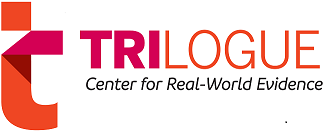

Compute
Our team compiles information about accessing real-world evidence resources at Pitt.

Implement
We support investigators’ multidisciplinary teams to evaluate interventions to improve health and healthcare.

Partner
We help investigators engage and work successfully with community and clinical partners to maintain our focus on patient-centered outcomes research. Take advantage of the infrastructure, resources, and experience of our team.
What is Real-World Evidence?
Real-World Evidence is based on data that’s gathered in the course of routine clinical care (like electronic health records) and from patients’ self-reports (like survey responses). It can also include other relevant data sources such as insurance claims and research registries. In contract to the highly controlled context of clinical trials, patients in the real world have more variable experiences with their health and health care. By extending medical research into these day-to-day contexts, we can explore and improve patient health and delivery of health care more efficiently and meaningfully.

About Trilogue™
Trilogue™ Center for Real-World Evidence was established in 2021 by the University of Pittsburgh’s Department of Medicine to support Pitt/UPMC researchers efforts to engage in patient-centered research to improve the health and health care in our communities.
Vision
Enriching and improving health and health care through engaged research and real-world insights.
Mission
We strive to create pathways for Pitt/UPMC researchers to engage with clinicians, patients, and research funders in a collaborative pursuit of excellent health and healthcare outcomes based on real-world evidence.
Our Publication Philosophy
We are committed to sharing our findings with the people who need the results to make better health decisions. In addition to publishing in high-quality, peer-reviewed journals, we promote readable abstracts in everyday language and champion the inclusion of patient partners in authorship groups. By partnering with patients and clinical communities, we increase the reach of research findings that have timely implications for patient health and health care.
Our publications conform to the ICMJE recommendations for ethical medical reporting, including:
- Following authorship and contributor criteria to ensure that credit is given where it is deserved
- Protecting academic integrity, in part, by requiring transparency and full disclosure of any financial or other relationships and activities that could be perceived as conflicts of interest
- Preserving primary research data and analyses in a safe repository for at least 10 years after publication of the results
- Protecting patients’ privacy and personhood by adhering to ethical standards of human subjects research, including the Declaration of Helsinki (rev. 2013) and the process of institutional review board approval
Selected Publications
Real-world prescribing in accordance to ACC/AHA guidelines for lipid-lowering therapy in high-risk primary and secondary prevention of ASCVD: Real-World Prescribing for Lipid-Lowering Therapy. Arnold J, Acharya D, Boricha H, Chapagain H, Kainat A, Bradley A, Jeong J, Townsend KA, Ateya MB, DeMicco DA, Alish Y, Becich MJ, Chuang CH, Fernandez SA, Ford DE, Hwang W, Kirchner HL, Morgan R, Paranjape A, Thomas NA, Williams DA, Hegeman-Dingle R, McLeod E, Saccone PA, McTigue KM. Am J Prev Card. 2025 July;23. doi: 10.1016/j.ajpc.2025.101067
The PaTH from discovery to implementation: Using a PCORnet® Clinical Research Network’s own research to prioritize topics for collaborative health improvement activities. , , , Hamm ME, Wyncott A, Merritt JG, Becich MJ, Fernandez SA, Ford DE, Kirchner HL, Parajape A, Williams DA, McTigue KM. Learn Health Sys. 2025;e70037. doi:10.1002/lrh2.70037
Publisher’s website
Substance use as subtext to health narratives: Identifying opportunities for improving care from community member perspectives.
Hamm M, Wilson JD, Lee YJ, Norman N, Winstanley E, McTigue KM. Patient Educ Couns. 2024 Nov;128:108384. doi: 10.1016/j.pec.2024.108384. Epub 2024 Aug 9. PMID: 39168050.
Publisher’s website
Limitations of Noninvasive Tests-Based Population-Level Risk Stratification Strategy for Nonalcoholic Fatty Liver Disease
Behari J, Bradley A, Townsend K, Becich MJ, Cappella N, Chuang CH, Fernandez SA, Ford DE, Kirchner HL, Morgan R, Paranjape A, Silverstein JC, Williams DA, Donahoo WT, Asrani SK, Ntanios F, Ateya M, Hegeman-Dingle R, McLeod E, McTigue K. Dig Dis Sci. 2024 Feb;69(2):370-383. doi: 10.1007/s10620-023-08186-8. Epub 2023 Dec 7. PMID: 38060170.
Publisher’s website
Trilogue™ Timeline
2015 – PCORnet® established including PaTH as an inaugural partner network
2016 – Story Booth Initiated
2017 – PCORnet® 2.0 begins
2019 – First PaTH-led Industry Study goes live: “Estimating the Burden of Nonalcoholic Steatohepatitis Using a Multistate Electronic Health Record Data Network”
2021 – Trilogue™ founded in the Department of Medicine
2022 – PCORnet® 3.0 begins
2024 – Trilogue™ Ambulatory Research Network (TARN) Launched
2025 – PCORnet® 4.0 begins